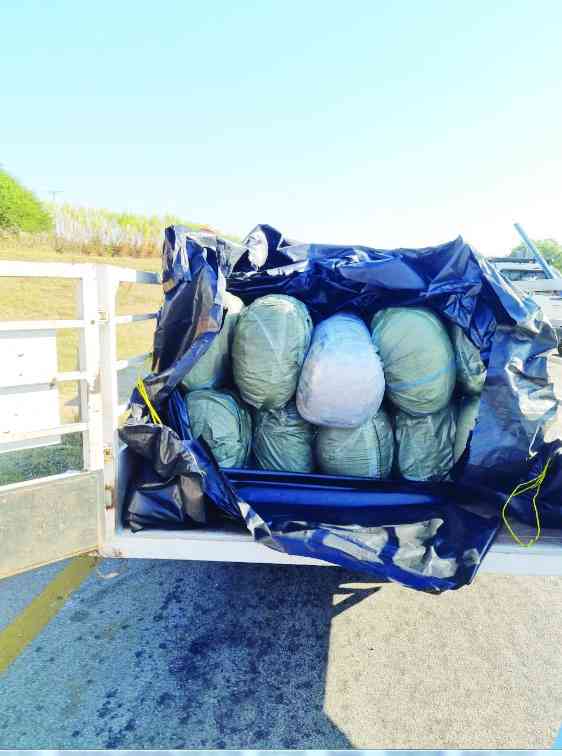
The election of Pope Leo XIV has revived global reflections on moral leadership, human dignity, and the ethical foundation of social and economic institutions.
At the heart of these reflections lies a pressing question: Can business serve the common good? In an age of uncertainty and widening inequality, James R Otteson’s Honourable Business offers a compelling answer. His framework champions business not as a necessary evil or a detached economic mechanism, but as a moral endeavour rooted in voluntary exchange, mutual benefit, and the pursuit of human flourishing.
Zimbabwe, a country striving to transition from decades of economic volatility to sustainable growth, has much to gain from this vision. With its entrepreneurial culture, resource endowment, and resilient people, Zimbabwe is well-positioned to reimagine its business landscape.
But for this reimagination to yield lasting prosperity, the country must adopt a business ethic grounded in dignity, trust, and cooperation. Drawing from Otteson’s hierarchy of moral value, this article explores how Zimbabwe can transform its economy by embracing honourable business principles.
Moral blueprint for economic life
Otteson’s thesis begins with a profound yet simple premise: Human beings seek eudaimonia — a life marked by purpose, virtue, and fulfilment. Translated into the realm of economics, this philosophical goal requires businesses and institutions to go beyond profit maximisation and engage in ethical, mutually beneficial exchanges.
His model outlines a five tier hierarchy of moral value in economic life:
- A just and humane society: Where dignity, peace, and opportunity are protected;
- Supporting institutions: Legal, political, and cultural systems that enable free cooperation;
- A properly functioning market economy: One that rewards voluntary, non -coercive exchanges;
- Honourable business: Enterprises that generate profit by creating genuine value for others; and
- Individual value creation: Personal innovation and initiatives that benefit others through ethical engagement.
These layers are interdependent. An honourable business can only thrive within institutions that safeguard property rights, encourage transparency, and enforce contracts. At the same time, businesses must model ethical leadership to elevate the institutions they depend on.
- African mass food markets as bases for business identities
- African women in politics: Influence or just numbers?
- Political representation alone is not enough to address global imbalances
- Foreign banks move to isolate Zim
Keep Reading
Zimbabwe’s institutional fragility — marked by inconsistent policies, bureaucratic inertia, and widespread informality — has made the pursuit of honourable business more challenging. Yet, as recent developments suggest, it is precisely this moral compass that can guide the country toward renewal.
Extractive to cooperative exchange
Zimbabwe’s post-independence economic history has often oscillated between moments of promise and periods of decline.
The fast-track land reform programme of the early 2000s, though grounded in historical redress, severely disrupted agricultural production and food security. It embodied what Otteson might call an extractive model — one that prioritises short term political gain over long term cooperative value.
In contrast, Botswana’s management of its diamond sector — through transparent governance and public private partnerships — demonstrates how extractive resources can be leveraged ethically for national development. The key difference lies in the design of institutions that support inclusive value creation, not elite accumulation.
Zimbabwe’s informal economy, estimated to account for over 60% of employment, reveals the latent power of cooperative enterprise. From street vendors in Harare to cross-border traders in Beitbridge, millions of Zimbabweans engage in voluntary exchange every day.
These transactions are not mandated by the state, nor protected by regulation, yet they function because of trust, reputation, and mutual benefit. This is the essence of honourable business in its rawest form.
The challenge lies in formalising and scaling these interactions. Regulatory reforms that protect small-scale entrepreneurs — such as simplified business registration, access to credit, and market infrastructure — could transform subsistence trade into thriving enterprise.
Markets as moral spaces
A common critique of markets is that they exacerbate inequality and commodify human life. Otteson challenges this by insisting that properly functioning markets — anchored in fair rules and moral norms — are unparalleled in lifting people out of poverty.
The Zimbabwean tobacco sector offers a telling example. Smallholder farmers, once marginalised, now dominate national output through contract farming arrangements. Companies such as Tian Ze Tobacco have linked farmers to international markets while providing inputs, training, and guaranteed prices.
Such models of partnership reflect Otteson’s ideal: Businesses succeed not by coercion or monopoly, but by discerning and meeting genuine human needs. However, these gains remain vulnerable to external shocks and internal distortions. Currency instability, policy unpredictability, and rent-seeking behaviour can quickly erode trust and disincentivise honourable conduct.
Business of dignity — Rethinking enterprise in Zim’s moral economy
Zimbabwe’s institutions must therefore cultivate what Otteson calls “autonomy and feedback” — environments where people are free to act, and where good decisions are rewarded.
A functional credit system, a fair judiciary, and effective anti-corruption mechanisms are all prerequisites for this moral ecology.
Healing divisions through enterprise
In Honourable Business, Otteson observes that markets encourage cooperation across social, ethnic, and religious divides. When people trade, they are compelled to find common ground. Zimbabwe’s political tensions remain embedded in electoral politics, land allocation, and public service appointments. Yet the marketplace often tells a different story.
At bustling trade hubs like Mbare Musika, ethnic boundaries blur in pursuit of enterprise. Here, all traders, including from Mozambique and Malawi, engage daily in cooperative exchange. Trust and competition — not patronage — govern the flow of tomatoes, chickens, and second hand clothes. This is a lesson in reconciliation by commerce. It reminds us that while politics may divide, enterprise can unite.
Zimbabwe must therefore foster policies that expand — not constrain — this sphere of economic solidarity. Doing so could reduce the influence of identity based exclusion and promote a more meritocratic culture.
Building institutions that enable honourable business
No business can thrive in isolation. Honourable enterprises require institutions that uphold contracts, resolve disputes, and deter predation. Zimbabwe has made efforts in this direction, with the Zimbabwe Anti-Corruption Commission (Zacc) stepping up enforcement and transparency measures. Yet enforcement without moral renewal risk becoming reactive rather than transformative.
Otteson suggests that ethical behaviour flourishes when people believe the rules are fair and consistently applied. Businesses, civil society, and faith based organisations must therefore become co - authors of the institutional script — not just passive recipients. For instance, business chambers can champion ethical codes of conduct; churches can integrate economic teachings on stewardship and justice; and universities can design curricula that blend enterprise with ethics.
Conclusion: Towards a culture of honourable enterprise
As Zimbabwe reflects on its economic path, Otteson’s message resonates with particular urgency. The future does not lie in redistribution without productivity, nor in deregulation without responsibility. Rather, it lies in a renewed commitment to building a moral economy — one that treats business not as a zero sum game, but as a platform for dignity, innovation, and shared prosperity.
Pope Leo XIII’s Rerum Novarum, and more recently the humanistic management movement, have similarly advocated for economic systems rooted in the common good. These ideas are not utopian; they are increasingly recognised by entrepreneurs, educators, and policymakers around the world.
Zimbabwe can lead this shift. Its challenges are real, but so is its potential. By embedding honourable business principles in its institutions, policies, and everyday transactions, the country can turn its entrepreneurial energy into a national asset. What is needed is not just capital — but character. Not just profit — but purpose.
It is time to transform business into a vocation of dignity — one that empowers individuals, strengthens communities, and rebuilds trust in the Zimbabwean dream.
Jongwe is a humanistic leader with extensive expertise across various industries in Southern Africa, including higher education. — WhatsApp at+263 788016938/ email: consultgws@gmail.com.






